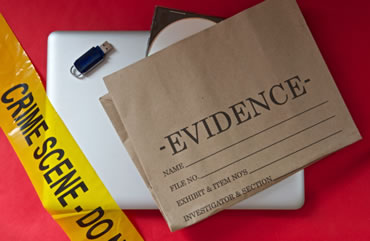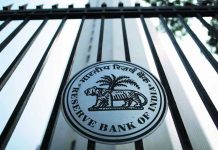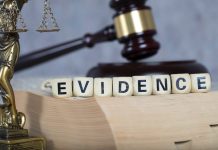This article is written by M.S.Sri Sai Kamalini, currently pursuing B.A.LLB (Hons) from School of law, SASTRA. This is an exhaustive article which deals with various provisions relating to opinions in the Indian Evidence Act backed up with case laws.
Table of Contents
Introduction
The investigation in criminal trials is a very tedious process. There are a lot of situations when Judges cannot decide the case and they might need the outside help. The opinion of experts comes into play during such times. There are many persons who are well versed in various fields like forensics and medicine and they help the Judges to decide cases by providing opinions whenever it is necessary.
These opinions play a major role in arriving at a decision to a particular case. There are certain sections in the Indian Evidence Act, which govern the rules regarding the opinion of experts.
Opinion of Experts
The term opinion was explained in the case of Dolgobinda Paricha vs Nirmal Charan Misra, by Justice S.K Das, According to him, “Opinions means something more than retailing of gossip or of hearsay; it means a judgement or belief, that is a belief, that or a conviction resulting from what one thinks on a particular question. The belief or conviction may manifest itself in conduct or behaviour which indicates the existence or belief or opinion.”
The opinion of experts plays a vital role in deciding the cases. of the Indian Evidence Act provides the areas where experts’ opinion can be asked. According to this Section, the Judges can ask the opinions when they have any doubt in:
- Science;
- Foreign law;
- Art;
- Handwriting;
- Finger impressions.
The persons who are considered as experts are the ones who have special knowledge and are especially skilled in a particular area, for example, forensic experts. The opinion of such experts is considered to be relevant. There are also various illustrations provided in Section 45, regarding the opinions of experts. They are:
Illustration A:
- The question that was in issue was whether the death of A occurred due to consumption of poison.
- The expert opinion can be asked from the medical experts and if they say that the symptoms reveal death due to poison, then it is considered relevant.
Illustration B:
- The question that was in issue was whether a certain document was written by A and does it correspond to his handwriting.
- A submitted another document and said that was his handwriting.
- The opinion of a handwriting expert who went through both the documents and the results will be considered as relevant.
In the case of Prahlad Saran Gupta v Bar Council of India, it was held that the Court can act on the opinion of handwriting experts and there is no need for any corroboration of evidence. This case enforces the importance of handwriting experts.
In the case of Shyamal Kumar Sen v Sanjukta Mukherjee, it was held that the evidence and opinion of a handwriting expert are relevant but it cannot be held as a separate and single determinant of the genuineness of the document. This decision has a contrary view to the decision above mentioned.

Facts bearing upon the opinion of the experts
Section 46 of the Indian Evidence Act deals with the facts bearing upon the opinion of the experts. According to this Section, facts which are otherwise not relevant will become relevant if they are in support of or if the facts are inconsistent with the opinion of the experts. It is important that the opinion of such experts should be relevant. There are various illustrations provided in the Section:
Illustration:
- The main question was whether A was poisoned by a certain person. In this case, the symptoms exhibited by another person who is poisoned by the same person becomes a relevant fact, even though it is not related to A.
- The expert’s opinion regarding whether they deny or affirm the facts relating to the symptoms after consuming the poison also becomes relevant.
Opinions regarding the handwriting
Section 47 of the Indian Evidence Act clearly explains the rules which are concerned with the opinions regarding the handwriting. According to this Section, the Court can ask opinion from a person who is acquainted with the handwriting in the document when it is necessary to form opinions regarding particular handwriting in a document.
The person is known to be acquainted with the handwriting of any person when he has seen the person write, basically, the person can recognize the handwriting in the document which is in question. The person acquainted with the handwriting can also recognize the handwriting when the document in the ordinary course is submitted to him.
Illustration:
- The main question was whether Mr. A has written a certain letter to a merchant in London.
- B who is a friend of A and is acquainted with the handwriting of A can give an opinion about whether the letter was written by A or not.
In the case of Fakhruddin v Stae of Madhya Pradesh, it was held that the evidence provided by the person who was present when the writing was made would also be considered as direct evidence and other evidence were considered as unnecessary even if they are available as this evidence was given prime importance.
Opinions regarding digital signature and its relevancy
Section 47A of the Indian Evidence Act discusses when the opinion regarding the digital signature is relevant. According to this Section, the court can ask opinions of the certifying authority who are authorized to issue a digital signature certificate. The opinions of the authorities are held to be relevant.
The digital signature certificate is to ensure that the digital signature is original and proper. The digital signature is created electronically and it is widely used in modern times. A certifying authority means a person who has been granted a license under the Information Technology Act, 2002 in order to issue a digital signature certificate. The authority is given powers under Section 24 of the Information Technology Act, 2002.
Opinions regarding the existence of customs
Section 48 of the Indian Evidence Act provides whose opinion is relevant regarding the existence of customs. According to this Section, when there is a need to form an opinion about the existence of a general custom or right, the court can ask the persons who are well aware of the existence of the customs. The term general custom is defined as “rights or customs common to a considerable class of persons”
Illustration:
- The main issue was to decide whether a particular custom is followed in the place. The custom was regarding a drawing of water from a well.
- The opinions can be asked by the residents of the place or the elders who are aware of the customs.
- The opinions provided by the persons are considered to be relevant.
In the case of Radha Krishna Kandolkar vs Tukaram, the issue was similar to the issue provided in the illustration. The main question of the issue was the right of a person to draw water from a certain pond that they have been drawing water from for more than thirty years. In this case, it was held that the mere fact that the person is allowed to draw water does not make it a custom. Recognition of right by the community is necessary, even though one person is benefited out of the particular custom.
Opinions as to usages and tenets
Section 49 of the Indian Evidence Act provides the opinions of certain persons are considered as relevant when to form an opinion as to usages and tenets. The opinions of people who have special knowledge about the particular aspect are relevant. There are certain matters the Court can ask opinions on like:
- The usages and tenets of any body of men or family;
- The constitution and government of any religious or charitable foundation;
- The meaning of words or terms used in particular districts or by particular classes of people.
Illustration:
- The main question was regarding the meaning of a particular term used in certain areas;
- The residents or the persons who have special knowledge in the aspect can provide opinions regarding the meaning;
- The members of a particular class who are associated with the word can also provide opinions regarding the meaning.
The word was “nikhalis” and it’s meaning was used in a particular trade. The word commonly means impure but there are certain regions where the term denotes hundred per cent purity. The opinion of a person who is well versed with the trade and the usage of the word in the trade can be considered as relevant and proper evidence. The opinion can also be provided by a single person, there is no need for a group of persons to provide an opinion on the particular issue.
Opinion as to the relationship
Section 50 of the Indian Evidence Act provides when the opinions as to relationship are considered as valid. When there is a doubt regarding the existence of a relationship between the two persons, the Court can ask opinions from family members or any persons who have special knowledge about the fact. There is also a proviso to this Section, that these opinions are not sufficient to prove a marriage in proceedings under the Indian Divorce Act. The opinions are also not relevant for prosecutions under:
- Section 494 of the Indian Penal Code which deals with the offence of bigamy;
- Section 495 of the Indian Penal Code which deals with the punishment for bigamy;
- Section 497 of the Indian Penal Code which deals with the offence of adultery;
- Section 498 of the Indian Penal Code which deals with the enticing of married women.
Illustration:
- The main question of the issue was whether A is the son of Mr. B;
- The opinion A’s mother in this regard will be considered as a relevant opinion.
In the case of Shriram Didwani vs Gouri Shanker, is an important case in the opinions regarding the relationship. It was held that the opinions expressed by the persons who are not the members of the family are also considered as a relevant opinion. The person needs to have knowledge about the family. The opinions can be provided by various persons like grocers, doctors, teachers or any friends who are aware of the relationship
In the case of Jagdish Parshad vs Sarwan Kumar, it was held that the conduct of the person in visiting a temple and signing entries in the record before the priest that a particular person was his nephew and not his son was held to be a valid opinion and valid evidence in inheritance between the person and his real son.
In the case of Bant Singh vs Niranjan Singh, the dispute was regarding the property and in a suit for the property, the plaintiff disputed that the defendant’s mother was his sister. The brother in law who was eighty years old had the knowledge about the members and affairs of the family. He had special knowledge about the opinion and his opinion was held to be valid evidence.
Grounds of opinion when relevant
Section 51 of the Indian Evidence Act provides the grounds of opinion when relevant According to this Section when the opinions of a living person are relevant, the grounds on which the opinions are formed is also relevant. For example, various tests conducted by experts for forming an opinion is also considered to be relevant.
Conclusion
The opinions provided by various persons form an important part in deducing a case. Judges can comprehend various aspects of the case with the help of opinions provided by experts and other third parties. The Court has to make sure it gets the opinion of the appropriate authority when there is difficulty in concluding a case. These provisions are applicable to a digital signature that is widely used nowadays. Thus these sections are very vital in the Indian Evidence Act and play a major role in supporting the judicial officers in order to carry out a fair and proper trial.
References
- Principles of Laws of Evidence by Avtar Singh.
- Indian Evidence Act, 1872.
LawSikho has created a telegram group for exchanging legal knowledge, referrals and various opportunities. You can click on this link and join:
https://t.me/joinchat/J_0YrBa4IBSHdpuTfQO_sA
Follow us on Instagram and subscribe to our YouTube channel for more amazing legal content.
 Serato DJ Crack 2025Serato DJ PRO Crack
Serato DJ Crack 2025Serato DJ PRO Crack










 Allow notifications
Allow notifications


